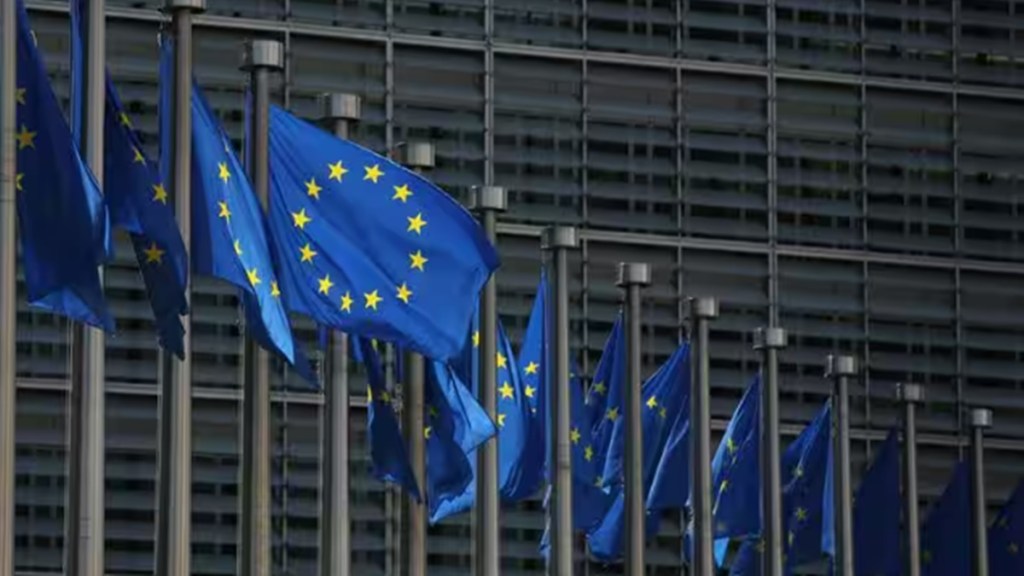A decade after the World Trade Organsiation (WTO) brought in a “peace clause” on public stock-holding for food security, mainly at New Delhi’s instance, the prospects are looking brighter for permanent solution for the vexed issue.
According to sources, the European Union (EU) has agreed to consider India’s demand for permanent solution at the agriculture negotiations meeting in Geneva on Monday. India has welcomed the EU’s change of stance and urged WTO members to start text-based negotiations on the issue “as soon as possible, preferably at the senior official meeting scheduled in late October,” they added.
The WTO ministerial meeting is slated to be held in Abu Dhabi in February, 2024. The expectations from the meeting has risen after the G20 Leaders’ Summit in Delhi early last month pledging to further the multilateral efforts to liberalise world trade, reviving hopes of an end to years of impasse.
Of course, Brussels still insist that “trade-distorting” aspect of the government interventions in the food market be addressed first.
India has invoked the 2013 Bali Peace Clause several times, and defended it saying that it not only benefitted vulnerable farmers but also bolstered global food security by keeping global prices in check and making food grains affordable for least developed countries.
Under the peace clause, price support for farmers by a developing country in any year is protected, even if it is perceived as trade-distorting, if aggregate value of the product-specific support does not exceed a 10% threshold.
The EU’s relenting on the issue is significant, as grain-exporting countries like the US, Canada and Thailand had raised frseh objections to India’s minimum support price (MSP) programme, following the Ukraine conflict. They contended that India’s rice exports distorted the world markets for the grain. India, however, argued that India was able to feed 800 million people under its food subsidy programme, thanks to the official procurement policy, and added that Indian supplies also kept global prices in check, benefiiting the needy in other countries.
Also, India pointed out that it doesn’t export raw paddy, but rice, which is mostly of premium quality.
The sources said the EU has now offered “a positive response” to suggestions related to safeguard mechanisms aimed at preventing illegitimate exports stemming from excessive food stocks (through public procurement).
It also wanted to broaden the definition to what constitutes “domestic support” and a direction towards reducing ‘trade distorting support’. The EU also wanted more transparency and information about the current stockholding programmes of various countries.
The US, however, stuck to its earlier stand that public procurement and stockholding distorts agriculture trade and it was premature to discuss safeguards for it.
Under text-based negotiations at the WTO, an agreement is finalised around draft texts floated by the chair of a particular committee dealing with the subject. The draft is based on discussions amongst the member countries and is fine-tuned till all the nations are in agreement with it.
On October 23-24 top trade officials of WTO member countries are meeting in Geneva to discuss the issues that can be deliberated at the ministerial conference early next year.
Developed countries and agriculture exporters have been against government procurement at administered prices and holding of public stocks. They say it distorts markets for agriculture. Developing countries link this issue to welfare and food security.
After years of hard bargaining on the issue, at the WTO Ministerial Meeting at Bali 2013 the ‘peace clause’ was agreed to, but with conditions that governments making use of it have to avoid trade-distorting subsidies and to provide information on how they are meeting the conditions.
The peace clause also ensured that the public procurement programmes could not be challenged at the WTO. India wants the peace clause, which was an interim measure, but with no end date, to be made permanent. India will push for a permanent solution for the issue at the next ministerial meeting at Abu Dhabi in 2024.
As part of a permanent solution, India has asked for amendments in the formula to calculate the food subsidy cap and inclusion of programmes implemented after 2013 under the ambit of ‘Peace Clause’.
For calculation of limits of support that can be offered prices of 1986-1988 are taken as base and then adjusted for inflation. India is also asking for a change in it.
Under WTO norms, a developing country’s food subsidy bill should not breach the limit of 10% of the value of production based on the reference price of 1986-88. Subsidies over and above the prescribed ceiling are seen as trade distorting.
The US has earlier pointed out that India exceeds the limits of support allowed under the interim pact on the issue which has enabled it to become top rice exporter.
India’s stand has been that it exports premium rice varieties which are not part of public procurement.
